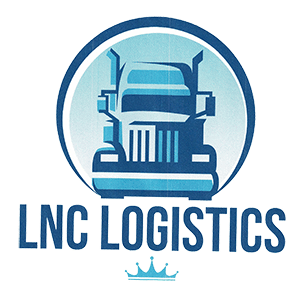In the dynamic world of freight transportation, Less Than Truckload (LTL) shipping has emerged as a pivotal solution for businesses. It offers a flexible and cost-effective means for companies to transport smaller quantities of goods without the need for a full truckload. With the increasing demand for efficient logistics, understanding LTL shipping and its distinct features compared to other methods like Full Truckload (FTL) is crucial. This article delves into the fundamentals of LTL freight and its transformative impact on the transportation of goods.
What is LTL Shipping?
LTL shipping stands for Less Than Truckload shipping. It is a method specifically designed for shipments that do not require an entire truck, thereby allowing multiple shippers to share space on the same vehicle. This consolidation of shipments enables LTL carriers to optimize truck space usage, significantly reducing shipping costs for businesses and minimizing the environmental impact. In an era where efficiency and sustainability are paramount, LTL shipping stands out as a strategic choice for modern logistics.
What Does LTL Stand For?
In the context of shipping, LTL stands for “Less Than Truckload.” This term underscores that the freight being shipped does not occupy the entire capacity of a truck, permitting multiple shipments to be transported simultaneously. The concept of LTL hinges on maximizing the efficiency of each trip by filling the truck with goods from various shippers, which not only cuts costs but also fosters a collaborative approach to logistics.
LTL vs. FTL: What’s the Difference?
The primary distinction between LTL and FTL (Full Truckload) lies in the utilization of truck space. FTL involves dedicating the entire truck to one shipment, which is ideal for businesses with large volumes of goods. On the other hand, LTL shares the truck space among various shipments, making it a more economical option for businesses that cannot fill an entire truck. By allowing multiple shippers to share the same vehicle, LTL reduces costs and provides greater flexibility, catering to the diverse needs of shippers with varying shipment sizes.
How Does LTL Freight Work?
LTL freight involves the strategic consolidation of shipments from different businesses, creating an efficient transportation network. Here’s a detailed step-by-step breakdown of how LTL freight typically operates:
- Pickup: The LTL carrier collects shipments from various shippers, ensuring that each package is correctly labeled and documented for the subsequent steps.
- Consolidation: Once collected, these shipments are brought to a terminal where they are consolidated based on their destination. This process involves sorting and grouping shipments to optimize delivery routes.
- Transport: The consolidated shipments are then loaded onto a truck and transported to a central hub, strategically located to facilitate further distribution.
- Deconsolidation: At the hub, shipments are sorted and loaded onto smaller trucks for final delivery to their respective destinations, ensuring each package reaches its intended recipient efficiently.
This process allows for the efficient use of resources, minimizing wastage and keeping shipping costs down while enhancing the reliability of delivery schedules.
What is an LTL Freight Carrier?
An LTL freight carrier specializes in the transportation of smaller shipments that do not fill an entire truck. These carriers provide the necessary infrastructure, such as terminals and hubs, to manage the consolidation and deconsolidation of shipments effectively. They play a crucial role in maintaining the flow of goods, ensuring that each shipment is handled with care and precision. By offering a network of services that cater to diverse shipping needs, LTL carriers are integral to the logistics ecosystem.
Advantages of LTL Shipping
LTL shipping offers numerous benefits, making it an attractive choice for businesses looking to streamline their logistics operations:
Cost-Effective
LTL shipping is inherently cost-effective because shipments share truck space, leading to costs being distributed among multiple shippers. This model significantly reduces the expense compared to FTL, especially for small to medium-sized shipments. Businesses can thus allocate their logistics budget more efficiently, investing savings into other areas of operation or enhancing their product offerings.
Flexibility
One of the standout features of LTL shipping is its flexibility. It allows businesses to ship smaller quantities without having to wait until they have a full truckload, ensuring timely delivery of goods. This flexibility is crucial for businesses that operate on tight schedules or need to respond quickly to market demands, providing them with a competitive edge in fast-paced industries.
Reduced Environmental Impact
By consolidating shipments, LTL shipping reduces the number of trucks on the road, leading to decreased fuel consumption and lower carbon emissions. This environmentally friendly approach aligns with global efforts to reduce carbon footprints and promotes sustainable business practices. Companies adopting LTL shipping demonstrate a commitment to environmental responsibility, which can enhance their brand reputation and appeal to eco-conscious consumers.
Understanding LTL Trucking and LTL Drivers
LTL trucking requires a specialized approach to manage the logistics of shared shipments effectively. The role of LTL truck drivers is crucial, as they ensure the timely and safe delivery of goods across various routes.
What is an LTL Truck Driver?
An LTL truck driver is responsible for transporting less than truckload shipments. These professionals often handle multiple pickups and deliveries in a single route, necessitating excellent organizational skills and time management. Their ability to navigate complex delivery schedules and coordinate with various stakeholders is essential to the success of the LTL model. By ensuring that each shipment reaches its destination efficiently, LTL truck drivers are a vital component of the logistics process.
Key Considerations for Choosing LTL Shipping
When considering LTL shipping, it’s essential to understand its nuances to make an informed decision that aligns with your business needs.
Shipment Size and Weight
LTL is ideal for shipments that are too large for parcel delivery but do not require a full truckload. Most LTL carriers have specific requirements for weight and dimensions, so it’s crucial to check these before booking. Understanding these parameters ensures that shipments are processed smoothly, avoiding delays and additional costs associated with non-compliance.
Delivery Speed
LTL shipments may take longer to deliver compared to FTL due to the consolidation and deconsolidation process. If speed is a priority, it might be worth considering expedited LTL services offered by some carriers. These services provide faster delivery times by prioritizing certain shipments, allowing businesses to meet tight deadlines without compromising the benefits of LTL shipping.
Freight Class
Freight class is another important consideration when choosing LTL shipping. It determines the shipping cost based on factors like density, stowability, handling, and liability. Properly classifying freight can prevent unexpected charges and ensure a smooth shipping process. Businesses should work closely with their carriers to accurately determine the freight class, optimizing their shipping strategy for cost and efficiency.
Final Thoughts on Choosing LTL Shipping For Your Business
When managing a business that requires shipping goods, choosing the right transportation method is crucial. Less-than-truckload (LTL) shipping has become a popular option for many businesses. It provides a cost-effective and flexible solution for shipping smaller loads. Here, we’ll discuss some final considerations when choosing LTL carriers to meet your business needs.
Understanding LTL Shipping
LTL shipping allows multiple businesses to share space on the same truck, making it a more economical choice for shipping smaller freight volumes. Instead of paying for an entire truck, you only pay for the portion of the truck space your shipment occupies. This method can significantly reduce your shipping costs, especially if your business doesn’t have enough goods to fill a whole truck.
Selecting the Right LTL Carriers
Choosing the right LTL carrier is pivotal to ensuring your shipments are handled properly and arrive on time. Here are a few factors to consider:
Reputation and Reliability
Research potential LTL carriers to evaluate their reputation and reliability. Look for carriers with positive customer reviews and a history of timely deliveries. Reliable carriers will have efficient tracking systems and good communication, keeping you informed about your shipment’s status.
Coverage Area
Ensure the LTL carrier you choose services the areas where you need to ship your products. Some carriers may have extensive regional coverage but limited national reach. Confirm that their network aligns with your shipping routes to avoid any logistical issues.
Pricing and Fees
Compare pricing among different LTL carriers, but don’t let cost be the only deciding factor. Understand the fee structure, including any additional charges for services like liftgate delivery or inside pickup and delivery. A transparent pricing model will help you avoid unexpected costs.
Benefits of LTL Freight
LTL freight offers several benefits for businesses, including reduced shipping costs, flexibility, and scalability. By sharing truck space with other companies, you only pay for what you need, which can be particularly beneficial for small to medium-sized businesses. Additionally, LTL shipping is adaptable, allowing you to adjust your shipping volume as your business grows.
Choose LNC Logistics
Choosing the right LTL shipping option can significantly impact your business operations. By selecting reputable and reliable LTL carriers, understanding their coverage, and evaluating their pricing structure, you can ensure that your shipping needs are met efficiently and cost-effectively. LTL freight offers a practical solution for businesses looking to optimize their shipping processes without compromising on service quality.
In conclusion, LTL shipping is a smart choice for businesses of all sizes. As you evaluate your options, keep these considerations in mind to make an informed decision that aligns with your business needs.
507 N Sam Houston Pkwy E Suite 202
Houston, TX 77060
Phone: (832) 777-1789
View our Google Business Listing
View our Facebook Page



